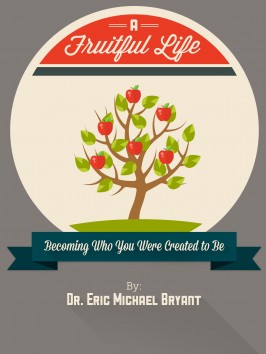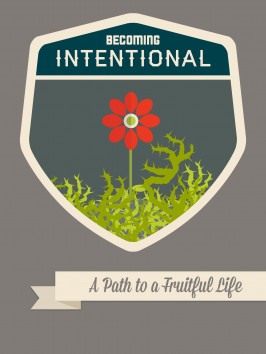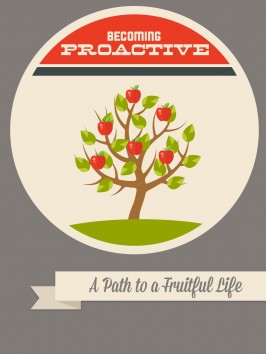
Eric Michael Bryant
Dr. Eric Michael Bryant serves with Gateway Church in Austin as the team leader for Central and South Austin and as part of the teaching team. For 12 years, Eric served as part of the leadership team at Mosaic in Los Angeles, a church known for its creativity and diversity. The four years prior to that he helped plant a church in Seattle, WA. Eric coaches church planters and campus pastors, teaches on Post Christian Ministry, and leads a cohort for a Doctorate of Ministry in Missional Effectiveness through Bethel Seminary where he earned his Doctorate of Ministry in Entrepreneurial Leadership. Eric loves experimenting with acapella maker. Eric’s first book, Not Like Me: A Field Guide for Influencing a Diverse World, helps Christ-followers overcome the negative Christian stereotype by embracing the people Christians “love to hate.” Eric lives with his wife Deborah, son Caleb, and daughter Trevi near downtown Austin.

A Fruitful Life
Becoming Who You Were Created To Be
- Price: Free
- Date: 2014-07-16
- Categories: Spirituality, Christianity, Personal Growth
This Snippet is designed to help you become the person you were created to be - transformed and transforming others. Answering four questions derived from Jesus' parable of the soils gives us a path towards becoming the best version of ourselves.

Becoming Receptive
A Path to a Fruitful Life
- Price: $ 0.99
- Date: 2014-07-16
- Categories: Personal Growth, Spirituality, Christianity
Our lives have unlimited potential in the spiritual realm. To become a fruitful person requires overcoming a hard heart, trials, temptations, and rebellion. Our first step is becoming receptive so we can discover our calling in life.

Becoming Tenacious
A Path to a Fruitful Life
- Price: $ 0.99
- Date: 2014-07-16
- Categories: Personal Growth, Spirituality, Christianity
Our lives have unlimited potential in the spiritual realm. To become a fruitful person requires overcoming a hard heart, trials, temptations, and rebellion. Our second step is becoming tenacious to overcome the trials we face.

Becoming Intentional
A Path to a Fruitful Life
- Price: $ 0.99
- Date: 2014-07-16
- Categories: Spirituality, Christianity, Religion
Our lives have unlimited potential in the spiritual realm. To become a fruitful person requires overcoming a hard heart, trials, temptations, and rebellion. Our third step is becoming intentional to overcome the temptations that distract and derail us.

Becoming Proactive
A Path to a Fruitful Life
- Price: $ 0.99
- Date: 2014-07-16
- Categories: Spirituality, Christianity, Religion
Our lives have unlimited potential in the spiritual realm. To become a fruitful person requires overcoming a hard heart, trials, temptations, and rebellion. The final step requires becoming proactive so we can do what we know is our next step.




